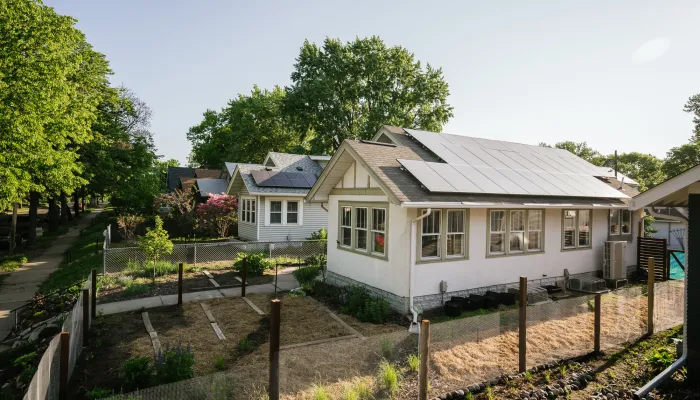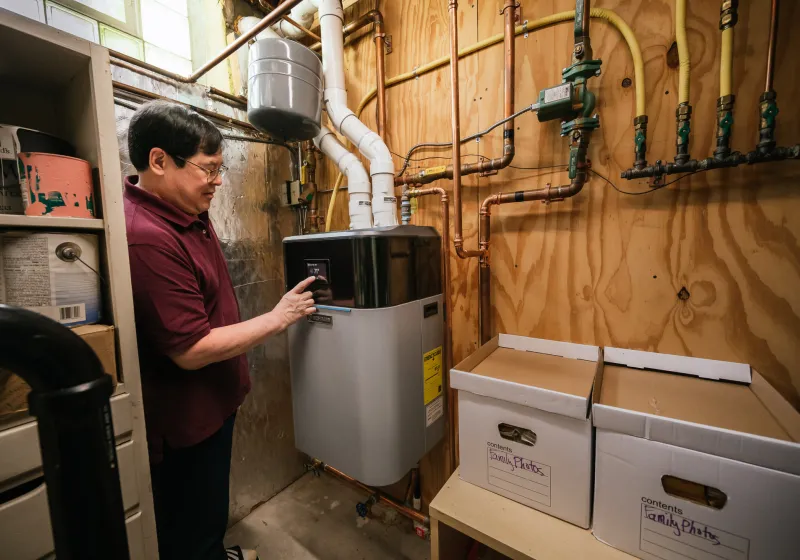Transition your home to electric equipment and appliances
Most people switch to electric equipment and appliances as opportunities come up. As you plan your electrification journey, you may want to consider factors like what appliances are closest to needing an upgrade, what financial incentives and rebates are available in your area, and even the reasons you’re electrifying. No matter what order you choose, any electrification project will help you reduce your home’s carbon emissions while making it healthier and more comfortable.
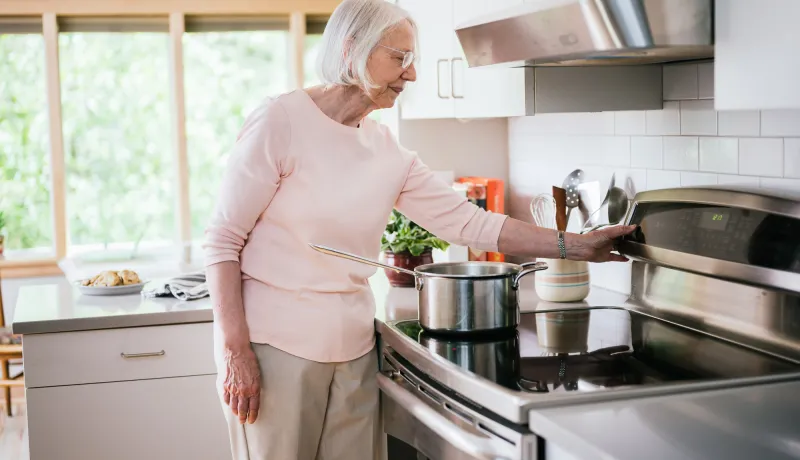
Cooking and Clothes Drying
Home appliances are ideal candidates for electrification because they are often more affordable and easier to install than other electrification measures. Gas stoves can cause indoor air pollution and worsen allergens, and both gas-powered stoves and clothes dryers are sources of greenhouse gas emissions at home. Induction stoves and heat pump dryers are also the most energy efficient cooking and clothes drying options available.
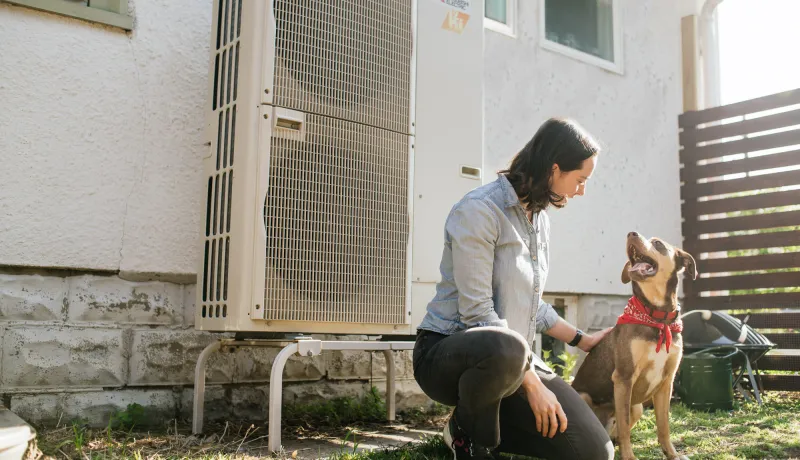
Heating and Cooling
Heating accounts for an estimated 70% of the annual energy use of a typical Minnesota home. By transitioning to a high-efficiency electric heating system, you can reduce your energy use while using cleaner energy. Your current heating system, the upfront and ongoing costs of the systems, your preferred heating method, and your home’s ductwork will all influence what heating system makes the most sense for your home.
Based on the system you choose, you may be able to receive both heating and cooling from a new system, like an air source heat pump (ASHP). ASHPs are typically the most practical, flexible, and affordable electric heating — and cooling — option for most homes.
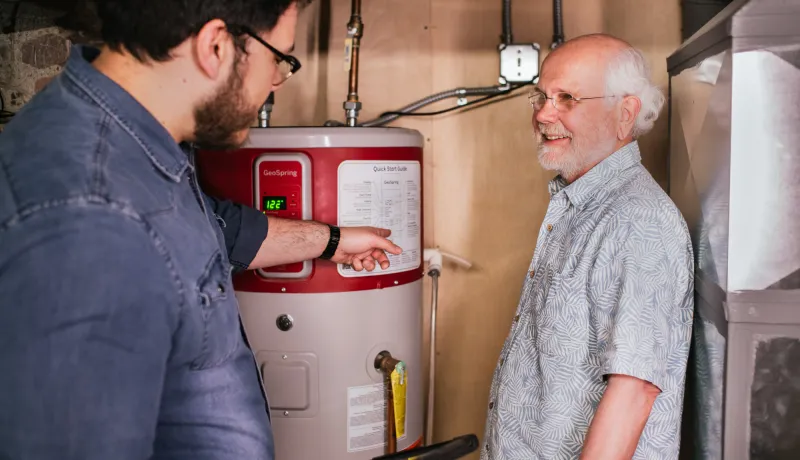
Water Heating
Heat pump water heaters, sometimes called hybrid water heaters, are an energy efficient option for residential water heating. This technology uses heat that’s already in the air to heat your water. By transitioning to a heat pump water heater, you will use less energy while reducing another source of combustion gas and indoor air pollution from your home. As a bonus, heat pump water heaters also help dehumidify the space around them.
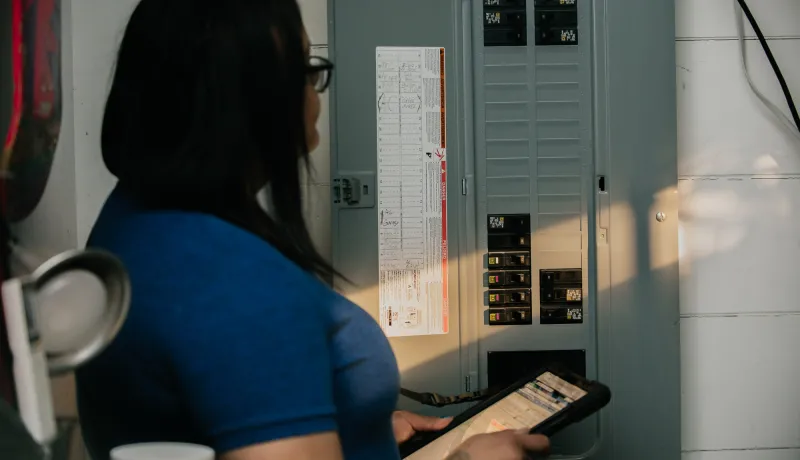
More Electrification Upgrades
As you get ready to electrify, there are other projects you can do to prepare your home for electrification while making it more efficient and climate friendly. If you live in an older home, you may need to upgrade your electrical, or service, panel and wiring to handle the additional electrical load of future upgrades.
Minnesota’s electric grid continues to get cleaner, making increased electricity use an effective way to reduce your home’s carbon footprint over time. You can also explore renewable energy solutions, like solar panels or renewable energy subscriptions, to ensure your electricity comes from carbon-free sources.
Start electrifying your home today
